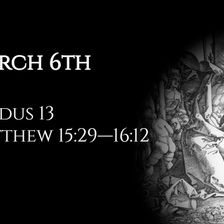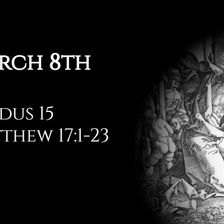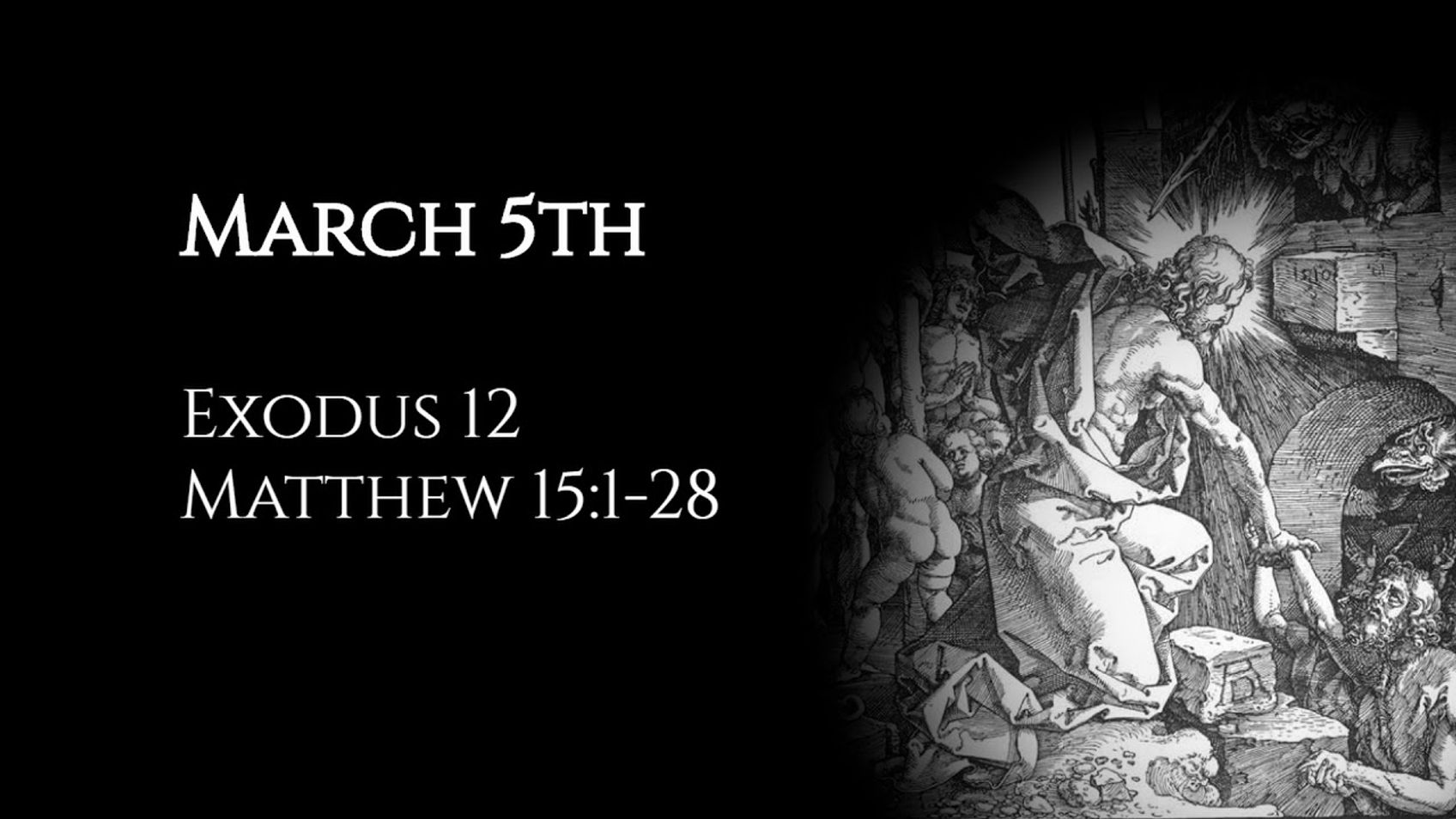March 5th: Exodus 12 & Matthew 15:1-28

The Passover. Nullifying God’s commandment for tradition; the faith of a Canaanite woman.
Exodus 4:22-23 (the initial threat to the firstborn); Genesis 19 (the destruction of Sodom); Genesis 33:17 (Succoth in Jacob’s journeys).
Exodus 21:17 (judgment upon those dishonouring father or mother); Isaiah 29:13 (draw near with mouths, but hearts far from me); Matthew 10:5-6 (the lost sheep of the house of Israel); Matthew 8:5-13 (the faith of the centurion praised).
Reflections upon the readings from the ACNA Book of Common Prayer (http://bcp2019.anglicanchurch.net/).
If you have enjoyed my output, please tell your friends. If you are interested in supporting my videos and podcasts and my research more generally, please consider supporting my work on Patreon (https://www.patreon.com/zugzwanged), using my PayPal account (https://bit.ly/2RLaUcB), or by buying books for my research on Amazon (https://www.amazon.co.uk/hz/wishlist/ls/36WVSWCK4X33O?ref_=wl_share).
The audio of all of my videos is available on my Soundcloud account: https://soundcloud.com/alastairadversaria. You can also listen to the audio of these episodes on iTunes: https://itunes.apple.com/gb/podcast/alastairs-adversaria/id1416351035?mt=2.
More From Alastair Roberts






More on OpenTheo















